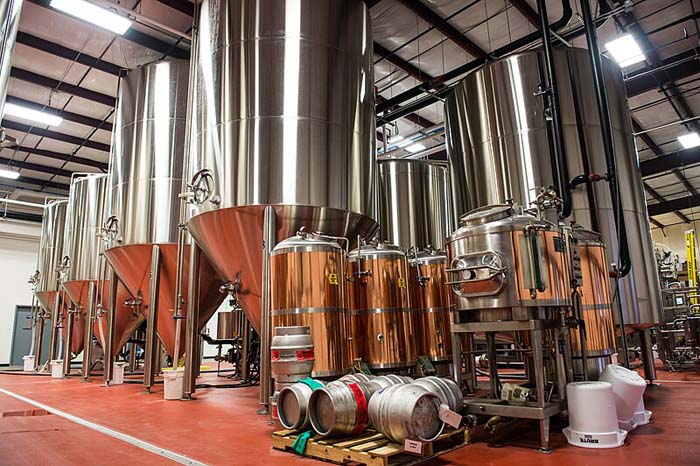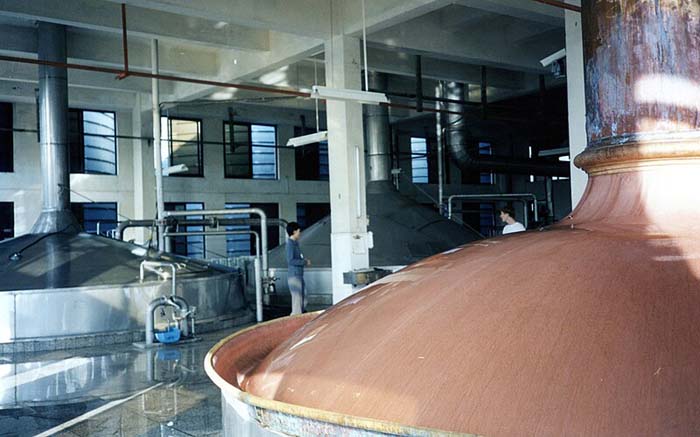
The brewing industry, famous for making beer, accounts for an important part of the worldwide beverage market. However, the brewery industry is known to produce large quantities of wastewater, which causes problems with regulatory and environmental challenges. Effective wastewater treatment depends on breweries’ long-term viability and ability to comply with environmental regulations.
Key Pollutants in the Brewery Industry Wastewater
In the absence of adequate treatment, the wastewater produced by the brewing industry contains numerous contaminants. These pose serious threats to the environment. Common contaminants found in wastewater from breweries include the following:
- Volatile organic compounds
- Compounds like aldehydes, organic acids, and alcohols can aggravate odor issues and threaten aquatic life due to their toxicity.
- Temperature
- The high temperatures at which brewery wastewater is often released into receiving bodies of water have the potential to alter their temperature and have an effect on aquatic ecosystems.
- Chemical oxygen demand
- The term refers to the total amount of oxygen required for the oxidation of all substances in the wastewater, regardless of whether they are organic or inorganic. Chemical oxygen demand suggests how much of an effect the wastewater could have on the environment.
- Heavy Metals
- Equipment corrosion and the use of specific additives or ingredients during brewing could introduce trace levels of metals like manganese, zinc, and copper.
- Total Suspended Solids
- These are suspended debris in the wastewater, such as grains, yeast, and other brewing-related particles. High total suspended solids can cause clogging and sedimentation in bodies of water.
- Nutrients
- The wastewater from cleaning agents and raw materials contains nutrients such as phosphates, nitrates, and ammonia. Eutrophication can cause an overabundance of algae and subsequent oxygen depletion. This can occur in bodies of water that receive these nutrients.
- Pathogens
- Yeast, bacteria, and other disease-causing microbes can be found in waste products, fermentation, and raw materials.
- Biochemical Oxygen Demand
- Elevated biochemical oxygen demand levels indicate how much oxygen microbes require to degrade organic matter. This is due to high concentrations of organic matter, which includes ethanol, sugars, and other organic compounds.
- pH
- The pH level of brewery wastewater can vary. It can range from slightly acidic to slightly alkaline, depending on the cleaning agents and the brewing process. Extremely acidic or basic pH values jeopardize the effectiveness of aquatic life and biological wastewater treatment systems.
To eliminate these contaminants and reduce their effect on the environment, it is crucial to treat wastewater from breweries properly. Advanced oxidation, chemical precipitation, biological treatment (aerobic and anaerobic), and filtration are common treatment methods.

The importance of wastewater treatment in the brewery industry
There are a number of economic, regulatory, environmental, and operational reasons why wastewater treatment is so important for the brewing industry. The following are the main aspects that highlight its significance:
- Sustainability Goals
Treating wastewater is an important part of many brewers’ sustainability plans. Effective wastewater treatment aligns with the following principles:
- Environmental Footprint Decrease
Reducing the strain on ecosystems and natural resources.
- Regulatory Compliance
Environmental standards and regulations are tightening up. Breweries are obligated to treat their wastewater in accordance with discharge standards set by various levels of government.
- Shutting Down Operations
Regulatory bodies may temporarily or permanently shut down non-compliant operations.
- Legal Penalties
Legal action and heavy fines may follow for failing to comply with the rules.
- Corporate and public responsibility
Concern for environmental sustainability is on the rise among stakeholders and consumers. The following are the benefits of well-managed wastewater:
- Business Image
A brewery’s credibility and market value can be enhanced by its dedication to environmental protection.
- Community Relations
Responsible wastewater treatment techniques foster good relationships with local communities. This, in turn, reduces conflicts and enhances social license to operate.
- Resource Recovery
Modern wastewater treatment systems enable brewers to extract valuable resources, including:
- Energy Generation
Breweries can harness biogas, a renewable energy source, by using the anaerobic digestion of wastewater to power their operations.
- Reusing Water
The brewery industry can reduce its freshwater use and associated expenses by reusing treated water in several processes.
- Operational Efficiency
The following are some ways in which effective wastewater treatment can boost operational efficiency:
- Process Optimization
Waste and water can be better managed using treatment technologies, which can also reveal inefficiencies.
- Constant Quality
Maintaining high wastewater treatment standards constantly improves water quality for reuse in brewing operations, which leads to greater product quality.
- Protecting the environment
Wastewater from breweries is rich in nutrients, suspended solids, organic matter, and even dangerous chemicals. Poorly treated or untreated wastewater can lead to the following outcomes:
- Degradation of Soil
Soil degradation and plant growth are consequences of wastewater with high chemical pollutants or organic content.
- Pollution of Water
Contaminating water sources by releasing untreated wastewater can disrupt the ecosystem and harm aquatic life.
- Cost Savings
You can achieve significant savings through efficient wastewater treatment by taking the following actions:
- Reduced Costs for Waste Management
Treating and managing waste on-site may be more economical than hiring a waste disposal company.
- Decreased Costs for Water and Sewage
Reusing treated water reduces freshwater needs and sewage disposal rates.
Effects of not treating wastewater in the brewery industry
The economic, public health, and environmental impacts of untreated wastewater from the brewing industry are multifaceted and problematic. Notable effects include the following:
Operational Impact
- Operational Downtime
Operational disruptions or shutdowns due to non-compliance with environmental regulations can significantly impact output and revenue.
- Sustainability Problems
Investors and customers alike are placing a premium on companies that demonstrate sustainability. Breweries will only lose investment opportunities and market share if they treat their wastewater to fulfill sustainability standards.
Impact on the Economy
- Reputation Damage
Irresponsible wastewater management in the brewery industry can result in a loss of customer trust and, consequently, sales.
- Increased Cost of Treatment
Water treatment plants and municipalities may incur higher costs if polluted water sources require extensive treatment to meet safety standards.
- Regulatory Fines
Breweries may face financial hardship due to legal penalties and fines imposed by environmental regulatory agencies for failing to handle wastewater.
Impact on Public Health
- Resistant to Antibiotics
Antibiotics and other pharmaceutical residues may be present in wastewater from breweries. These compounds can aid in the emergence and spread of antibiotic-resistant bacteria, which is a major threat to public health.
- Health Hazards
Pathogenic microbes can flourish in polluted water sources, creating an ideal environment for waterborne illnesses like hepatitis, dysentery, and cholera. Contaminated water poses a significant health danger to anyone who drinks or comes into contact with it.
Impact on the Environmental
- Odor Issues
Negligible wastewater treatment can lead to unpleasant smells, which lower the quality of life for those who visit or live in the area.
- Loss of biodiversity
Untreated wastewater contains contaminants that are harmful to wildlife. These can cause aquatic species to die, food chains to be disrupted, and ecosystems to lose biodiversity.
- Soil Pollution
Pollution can be caused by incorrect wastewater disposal. Soil fertility and plant growth can be adversely affected by changes in soil chemistry caused by wastewater’s organic and inorganic components.
- Water Pollution
Brewery wastewater contains a lot of nitrogen, phosphate, organic matter, and suspended particles. These contaminants’ untreated release has the potential to degrade water bodies. This results in eutrophication and the overabundance of aquatic plants and algae, which has a domino effect on aquatic life as it reduces oxygen levels in the water.
Mitigation Strategies
Brewers can utilize a variety of wastewater treatment technologies to mitigate these adverse effects, including:
Advanced Treatment
Techniques include advanced oxidation processes, activated carbon adsorption, and membrane filtration.
Biological Treatment
The process involves treating wastewater with microbes that decompose organic materials.
Chemical Treatment
Using chemicals to remove or neutralize possible pollutants.
Physical Treatment
Processes such as filtration and sedimentation to remove suspended particles.
Conclusion
In order to be environmentally responsible and comply with regulations, wastewater treatment is an essential part of running a brewery industry. Breweries may reduce their environmental impact, improve resource recovery, and secure long-term sustainability by implementing cutting-edge treatment technology. Protecting natural resources and fostering sustainable development will require a steadfast dedication to efficient wastewater treatment as the sector keeps expanding.
